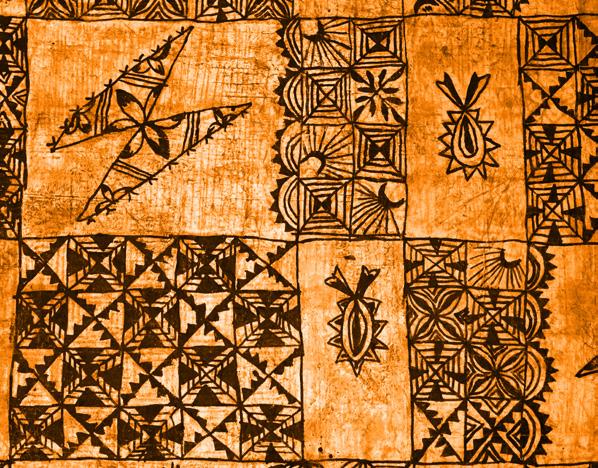
5 minute read
Inclusive HR career strategies for Samoans and Pacific peoples
Betty Ofe-Grant challenges HR professionals to move beyond token gestures to build culturally grounded career development pathways where all employees can thrive.
Despite decades of diversity rhetoric, Pacific employees in Aotearoa New Zealand continue to be underrepresented in leadership roles and overrepresented in low-paid, low-skilled roles. In addition, it is widely accepted that diverse and inclusive organisations are more innovative, creative and profitable, reflecting the world we live in. Unsurprisingly, HR has a pivotal responsibility to develop and harness the potential of their employees for success. Yet not everyone believes that this is currently happening.
Recent Aotearoa statistics on labour force participation confirm an ongoing trend of Samoans, and Pacific peoples in general, that they are overrepresented in lowskilled and low-paid jobs as labourers, manufacturers and cleaners, and are less likely to hold managerial positions. Recent research on the Pacific Pay Gap strengthens this disparity, with Pacific peoples earning significantly less than Pākehā (New Zealand European) men and women.
With future projections indicating that Pacific peoples will make up almost a third of the labour force, HR must implement effective strategies for managing a diverse and multicultural workforce. These strategies should promote inclusivity, cultural understanding and the successful development of their employees. So, how do we create inclusive career strategies that will support the careers of Samoans and Pacific peoples?
This article shares our research results on essential HR strategies that enhance career opportunities. Once you learn what they are, you can start implementing them today to help your company become more inclusive and proactive in supporting the careers and development of Pacific peoples.
DEVELOP CROSS-CULTURAL COMPETENCY PROGRAMMES
HR and leaders should prioritise developing cross-cultural competency. This can be achieved through diversity training programmes that emphasise different cultural norms, sensitivities and communication styles, reflecting the diverse makeup of the Aotearoa labour force. For example, our research shows that Samoans and New Zealand Europeans communicate differently. Samoans tend to avoid eye contact, preferring to look down and remain silent during conversations in keeping with the Samoan cultural value of fa’aaloalo (respect). In contrast, New Zealand Europeans prioritise eye contact, valuing words, expressions and the emotional nuances of conversations for solidarity, information sharing and agreement. These communication differences can lead to missed career opportunities, misunderstandings and cross-cultural conflicts.
For me, it was having an interview, and I have the utmost respect for him by looking down, and that still happens today. How do you overcome that?
By investing in cross-cultural competency, your company can enhance managers’ and employees’ abilities to navigate cultural differences, reduce misunderstandings, address unconscious biases, and enhance stronger engagement in developing all employees toward successful senior careers.
ONGOING MENTORSHIP PROGRAMMES AND SUPPORT
There is overwhelming evidence supporting the benefits of mentorship for ethnic minorities, Indigenous peoples, young people and women. Effective mentorship involves positive encouragement, a commitment to developing others, evaluating viable and realistic options for overcoming challenges, and making strategic connections with other networks and individuals. Having a mentor is akin to having a knowledgeable and well-connected ally supporting your career journey.
However, some opinions vary on the use of same-race versus cross-race mentors due to the different perspectives and experiences that ethnicity can present. Our research shows that Samoans are accustomed to having both Samoan (or Pacific) and non-Samoan mentors, with a preference for New Zealand European mentors, who are perceived as more constructive, supportive, influential and strategic for advancing to senior careers.
By encouraging, implementing and supporting mentorship programmes, your organisation can provide essential support systems that facilitate career advancement.
I’ve had some fantastic, superb mentors who are not Pacific but have been open to learning my worldview and can see that I bring value into their context.
PROVIDE PROFESSIONAL DEVELOPMENT AND TRAINING OPPORTUNITIES TO ALL EMPLOYEES
While all organisations aim to be inclusive and embrace diversity, our research shows this is not always the case. We found that many New Zealand companies offer senior management professional development and training opportunities, often excluding low- to mid-level employees, a demographic that primarily includes Samoans and Pacific peoples.
Look at the data of those who have completed your company’s professional development and training courses. Are they all from the same demographic group and at the same employment level? If so, then your HR processes may not be as inclusive as you would like them to be.
Hidden biases and agendas can block your company’s diversity and inclusion efforts, stifling authentic growth and transformation. The key to having happy, confident and engaged employees is to motivate them to take charge of their careers by providing opportunities to pursue professional development. Organisations that fail to prioritise professional development run the risk of losing talented and diverse employees to other organisations that invest in their employees.
These inclusive career development strategies are a win-win for both HR and Pacific peoples, who will feel supported and nurtured as they continue to develop new skills that bolster their confidence. This leads to higher overall job satisfaction, improved performance, productivity and morale. So, with these valuable insights in mind, I encourage you to act now!
Dr Maulupeivao Betty Ofe-Grant is a senior lecturer at Auckland University of Technology, specialising in workplace equity, diversity management, career development, and Pacific peoples and work. She is a multi-awardwinning researcher and a former Vice President of the National Council of Women New Zealand. Her work focuses on dismantling systemic barriers to professional advancement and promoting inclusive HR strategies that reflect the realities of Aotearoa New Zealand’s diverse workforce.










